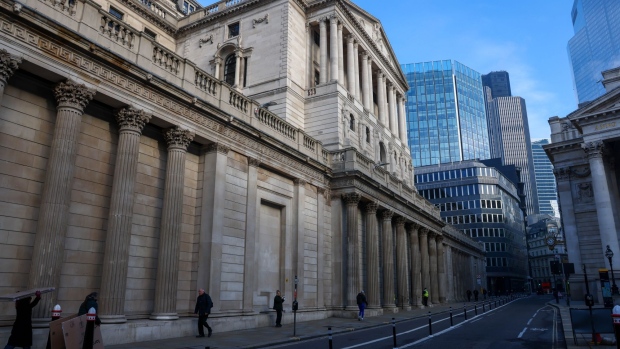Nov 28, 2020
BOE’s Haldane Says QE Size Challenges Central Bank Independence
, Bloomberg News

(Bloomberg) -- The extraordinary expansion in central banks’ balance sheets over the past decade poses a challenge to the independence of monetary policy, Bank of England Chief Economist Andy Haldane said.
Underscoring the scale of the BOE’s response to the coronavirus pandemic, Haldane said the size of the institution’s bond holdings will be close to 50% of the U.K.’s economic output and outstanding debt stock one its current asset-purchase program is concluded.
“Central bank balance sheet expansions have, for some people, blurred the distinction between monetary and fiscal policies and posed questions about central bank independence,” he said in a speech on Saturday.
The unprecedented surge in borrowing by governments during the pandemic has prompted some economists to suggest that central banks are directly financing spending and would struggle to raise interest rates even when the crisis is over. The decision to eventually withdraw monetary stimulus “will be more politicized,” Philipp Hildebrand, a former Swiss central bank chief, said this month.
Haldane said the BOE’s operational independence and its mandatory inflation target offer “strong protection against such fiscal dominance from a legal, market and political perspective.”
But he acknowledged that the sheer size of quantitative easing since the global financial crisis has “contributed to a loss of understanding, and perhaps some trust, in the role of monetary policy and its degree of separation from government actions.”
He also said record-low interest rates have reduced the effectiveness of central bank actions in stimulating demand, justifying a larger role for fiscal policy.
“In the current environment, facing such a shock, fiscal policy has provided more of the support to demand than during the global financial crisis,” he said.
©2020 Bloomberg L.P.